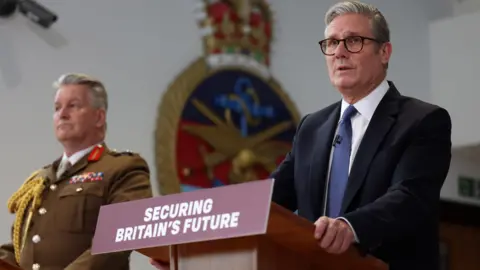The recent decision by the UK government to hand over the Chagos Islands to Mauritius has raised eyebrows and ignited a debate about sovereignty, security, and international diplomacy. Critics argue that in a world filled with geopolitical tension and uncertainty, it seems counterintuitive for the UK to relinquish control over a strategically significant territory located in the Indian Ocean. This political shift is seen by some as a threat to national security, as the Chagos Islands, particularly Diego Garcia, house an important military base crucial to UK and US operations.
The questions brewing around this decision focus not only on national security implications but also on the legal and practical motivations behind it. The UK government has cited a combination of legal pressures and the need to ensure the operational viability of its military presence in the region as the driving forces behind the deal. Defence Secretary John Healey has articulated concerns that without transferring sovereignty to Mauritius, the military base at Diego Garcia could soon face operational challenges that would compromise UK security interests.
At the heart of the situation are various United Nations rulings, which assert that the Chagos Islands rightfully belong to Mauritius. These legal perspectives argue that the UK’s separation of the islands from Mauritius prior to the latter’s independence was a violation of international law. Moreover, in 2019, the UN’s International Court of Justice issued a ruling that reiterated this stance, creating a potential legal obligation for the UK to return the territory. Government insiders have expressed that these international legal challenges could escalate and threaten the operational stability of the base, causing concern among military leaders.
The UK’s preemptive move to transfer control of the islands serves to mitigate this legal risk. Healey has warned that failure to reach this agreement could quickly lead to deteriorating legal conditions, putting at risk the base’s functionality. There are broader implications concerning operations conducted at Diego Garcia, including satellite communications and logistics, which could become complicated if Mauritius were to legally challenge the UK’s presence on the islands.
Furthermore, this decision capitalizes on a wider strategic narrative regarding geopolitical maneuvering in the face of rising dragon, China. The UK government has framed the deal as a way to prevent any foreign military installation from establishing a base on these islands that may threaten UK interests. Officials claim that by securing an agreement with Mauritius, the UK retains the power to block any foreign military presence that could emerge in the absence of a formal sovereignty agreement.
However, opponents of the government’s decision highlight several points of contention. Critics argue that the UK appears to be capitulating to international legal opinions rather than securing its interests. Some politicians have accused the government of exaggerating the legal threats posed by Mauritius, suggesting that the fears surrounding potential future legal actions are speculative. They contend that the UK could have pursued a more assertive legal strategy instead of agreeing to a concession.
The negotiations and their aftermath also carry a significant diplomatic weight. The UK has been accused of hypocrisy for advocating for adherence to international law while maintaining a colonial hold over the Chagos Islands. Questions arise regarding how the UK can champion international law against adversaries like Russia without addressing its situation in the Indian Ocean, which has led to intense scrutiny from allies and adversaries alike. UN Secretary General Antonio Guterres has even endorsed the agreement, reflecting a diplomatic viewpoint that sees value in resolving historical grievances.
Hampered by these complexities, and with ongoing debates in Parliament, the UK government may pass the agreement with relative ease due to its current majority, but it has not yet won the broader argument regarding its implications for sovereignty and security. The Chagos Islands case brings to light the intricate balance between national interests and international legal standards, raising pivotal discussions about the future of such territories amid changing global dynamics.



